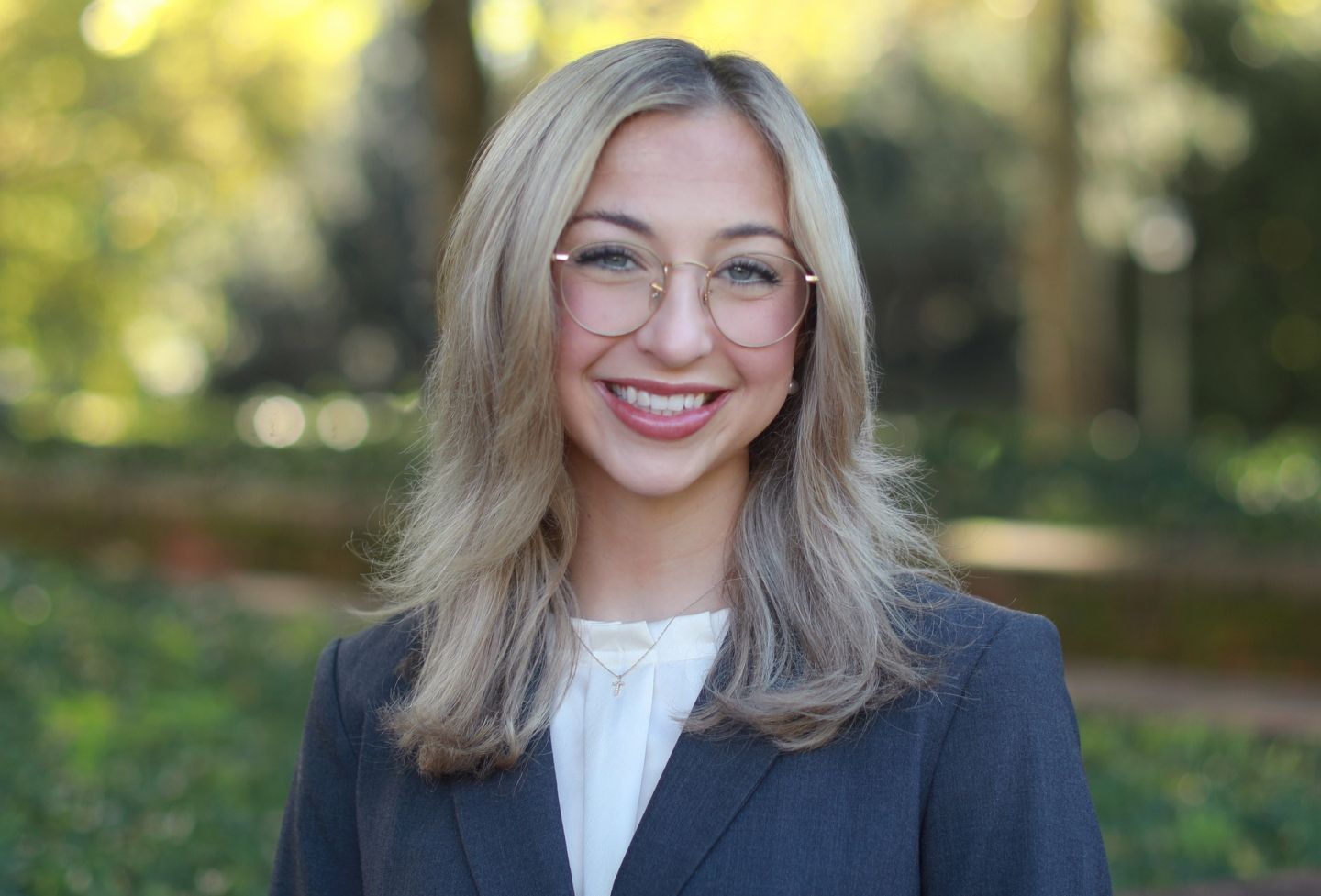Seven students, six flights, and 280 collective pro bono hours — that’s how the University of Virginia Black Law Students Association’s annual service trip to Cape Town, South Africa, stacked up by the numbers. Behind those figures, the week filled with volunteer work and sight-seeing was also an opportunity for some BLSA members to connect with a community that resonates with their roots.
“A lot of BLSA members have roots in Africa but have never been to the continent,” said third-year student Dorehn Coleman, who called the journey a “powerful experience.”
The students traveled to the country as part of BLSA’s partnership with Norton Rose Fulbright South Africa to assist the firm’s impact litigation team with drafting child abandonment legislation and refugee law.
The journey from Charlottesville to the southern tip of Africa was long — including a 12-hour flight from London to Cape Town — but the students stayed in high spirits, bonding over jet lag and visits to landmarks, according to BLSA President Laura-Louise Rice ’25.
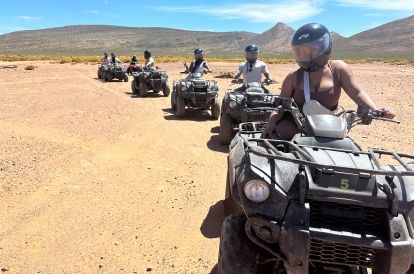
The group spent their first three days in South Africa touring Robben Island (where Nelson Mandela was imprisoned), driving all-terrain vehicles through safari grounds and visiting landmarks such as Cape Point, the Cape of Good Hope and Boulder’s Beach.
But most of the week was spent working on two research projects with Norton Rose.
In recent years, “baby savers” — boxes that allow mothers to anonymously offer their baby for adoption in a way that notifies attached health and social services — have come under legal fire in South Africa. BLSA members researched laws in other countries to build a legal argument for the baby savers. In the second project, the students researched international laws protecting refugees, in anticipation of South Africa’s planned withdrawal from U.N. refugee conventions.
After completing their refugee research, students visited the Scalabrini Centre of Cape Town, an organization that aids migrants and refugees.
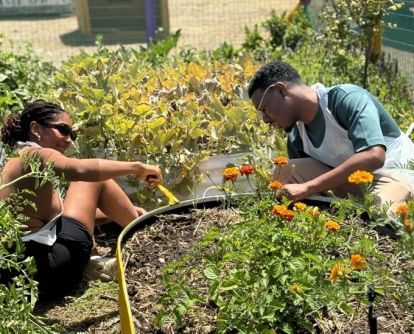
“It was great to see the legal landscape behind it all, as well as the practical application,” first-year student Kyle Trotman ’26 said.
BLSA members also visited the Philisa Abafazi Bethu Women and Family Centre, a nongovernmental organization that works with women and children who have experienced physical and sexual abuse. Rice said they were inspired by Lucinda Evans, the center director, who described herself to the students as being one of the most hated people in South Africa.
“It’s because she doesn’t back down,” Rice said. “She fights for people.”
At the Family Centre, students shifted to hands-on work, painting the community garden fence and advising senior citizens about their wills.
“It was so meaningful to be able to volunteer with local people, and was quite the change from legal research,” Rice said.
At the same time, she said, “Going on this trip twice now has made me ask myself, ‘How can I use the tools I’ve been given as a lawyer to be able to leave a place better than I found it?’”
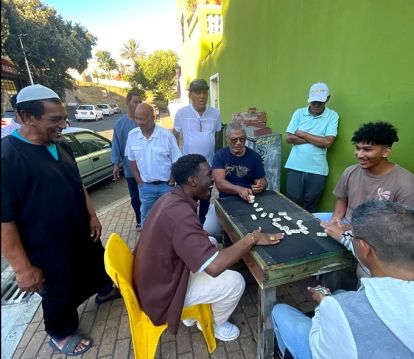
Trotman said he was excited to encounter a tradition that reminded him of home. One afternoon he saw a group of elderly men playing dominoes, a pastime inherited from his Guyanese parents.
“I walked up, asked to play, and beat them 4-1. It was the highlight of my trip, winning an ‘international’ competition,” he said.
The 10-day trip concluded with the students summiting Table Mountain — a landmark that UVA Law’s BLSA travelers often encounter but rarely get the opportunity to hike.
Because Cape Town is so windy, “you have to keep checking your phone to see if the [cable car] lift is open, and then rush to get there before it closes again,” Trotman said.
The day before the group departed for home, the winds cooperated and they made it to the top, which was enshrouded in clouds the locals refer to as “the tablecloth.”
“I’m from Florida, where everything is flat,” Trotman said. “Walking around on top of the mountain was so much fun.”
The trip was BLSA’s 13th service trip abroad. The experience is open to a limited number of students and BLSA pays their travel expenses and accommodations through relationships with participating law firms. Past destinations have included Tanzania and Uganda.
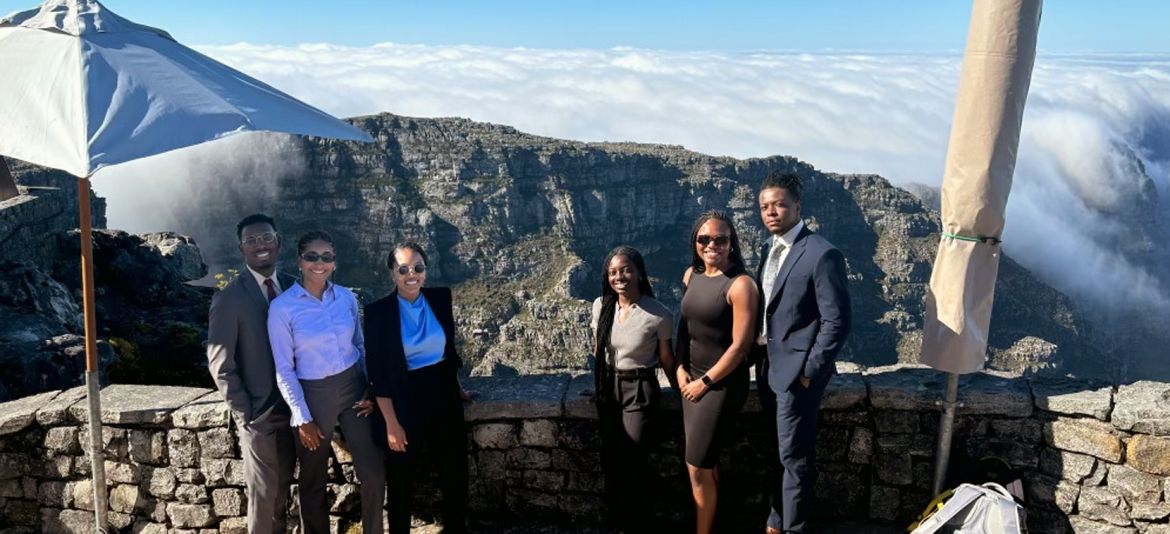
Founded in 1819, the University of Virginia School of Law is the second-oldest continuously operating law school in the nation. Consistently ranked among the top law schools, Virginia is a world-renowned training ground for distinguished lawyers and public servants, instilling in them a commitment to leadership, integrity and community service.
